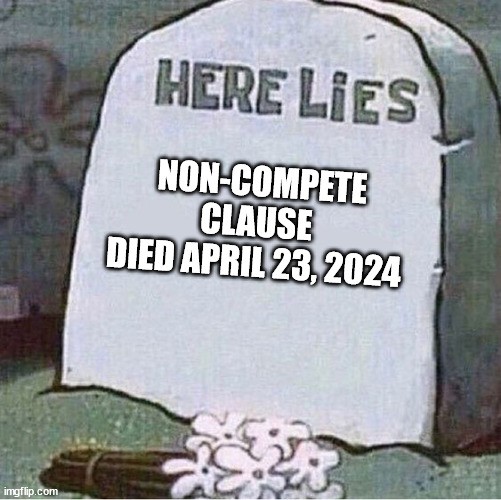House Bill 1388, which passed on April 6, 2024 and was approved by the Governor on April 25, 2004, modifies Section 3-716 of Maryland’s Labor and Employment Article to include significant restrictions for noncompete agreements in the health care industry.
For health care professionals other than veterinary practitioners and veterinary technicians, the scope of the restrictions depends on the amount of total annual compensation earned by the heath care professional.
$350,000 or Less of Total Annual Compensation:
The new law renders null and void any noncompete or conflict of interest provision contained in an employment agreement with respect to any person who meets the following criteria:
- Is required to be licensed under the Health Occupations Article;
- Is employed in a position that provides direct patient care, and
- Earns equal to or less than $350,0000 in total annual compensation.
More than $350,000 of Total Annual Compensation:
For persons meeting requirements 1 and 2 above, but making in excess of $350,000 of total annual compensation, the new law:
- Limits the restricted period for any noncompete or conflict of interest provision to a period not to exceed 1 year;
- Limits the geographical scope of any such provision to a radius of 10 miles from the primary place of employment; and
- Requires the employer of any such person whose employment is terminated to notify patients of the new location where such person will be practicing.
Effective Date of Law and Restrictions:
House Bill 1388 will take effect on June 1, 2024. However, the restrictions described above will apply only to contracts for employment executed on or after July 1, 2025. It’s interesting to note that the first version of the Bill included a provision that would have caused the restrictions to apply retroactively to any contract for employment regardless of when executed.
Miscellaneous:
The restrictions included in House Bill 1388 go beyond the health care professionals described above. HB 1388 also prohibits and renders null and void noncompete and conflict of interest provisions in any contract for employment with any person who is licensed as a veterinary practitioner or technician under Title 2, Subtitle 3 of the Agricultural Article, regardless of their total annual compensation. The restrictions applicable to veterinary practitioners and technicians are like the existing restrictions in Section 3-716 applicable to low wages workers (workers who earn less than 150% of the Maryland minimum wage rate), in that they apply to all contracts for employment, whether in existence on June 1, 2024 or executed thereafter.
HB 1388 May Already be Obsolete:
All that said, House Bill 1388 may be obsolete before it even takes effect. On April 23, 2024, the U.S. Federal Trade Commission voted to approve its Non-Compete Clause Rule, which, if it becomes law, will effectively ban all noncompetition provisions in all employment contracts other than contracts for employment with “senior executives,” as defined in the Non-Compete Clause Rule. The Non-Compete Clause Rule will become effective 120 days after the date of its publication, which is currently uncertain.
Confidentiality and Non-solicitation Covenants Are Not Affected:
While noncompete provisions may be on their way out under HB 1388 and the FTC’s Non-Compete Clause Rule, it is important to note that both HB 1388 and the Non-Compete Clause Rule do not affect confidential/proprietary information and non-solicitation agreements, provided that such agreements are not so broad as to constitute a de facto noncompetition agreement.
Summary:
Effective June 1, 2024, HB 1388 will impose significant restrictions on restrictive covenants in the State of Maryland. While these restrictions may be rendered obsolete by the FTC Non-Compete Clause Rule, employers should take action to ensure: (i) noncompetition and conflict of interest provisions are compliant, and (ii) confidential/proprietary information and nonsolicitation provisions provide maximum protection.
How MM&C Business Attorneys Can Help:
Please contact Miller, Miller & Canby should you have any question dealing with HB1388. Kevin D’Anna is a Principal at Miller, Miller & Canby and a member of the firm’s Business & Tax and Real Estate (finance) practice groups. Kevin regularly advises local and regional businesses of varying size and industry as a trusted outside counsel, providing legal advice on business formation, mergers, acquisitions or disposition, and complex business transactions. He may be reached at kkdanna@mmcanby.com.








Share this Article: